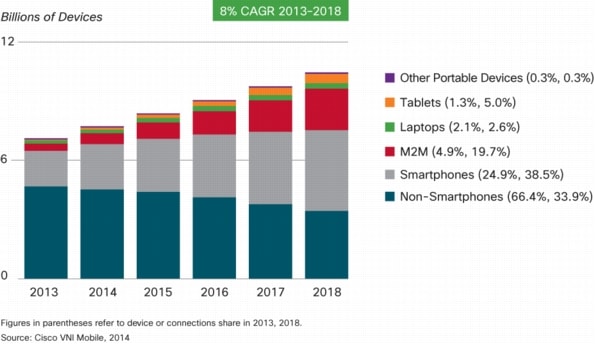Just read a very good article from Loïc Le Meur entitled "How much can you really make developing mobile apps?", written two months ago but just came accross it today, so that's why Loïc I can't post a comment anymore on your article.
You are making a very good point here I think, that is that in the "App World", the revenue stream is still for a happy few, and very far from representing the increase so much expected in mobile eCommerce.
Here are the different points I'd like to make on the subject you raised Loïc:
1. It's not a geek contest, but a business you know!!
I don't know why, but many people saw in those stores a chance to break the barriers that exist in the real world (by opposition to the virtual, eCommerce world); that is "hey, I'm going to make a great app, post it, and make revenues because anybody can make good apps", even if I could argue on what is a "good app".
Let's talk about games for example, 2nd category of content on the AppStore according to 148apps.biz, you are competing against large studios who invest few hundred thousand euros on each game, have dedicated studios to make trailers and other videos, dedicated sales and marketing teams in each major Apple markets. Guys, just like on PC, you need to realize that you're on a much different scale, not the same ball park! Would you launch a MMORPG like WoW tomorrow? They also had the early entrants advantage... Even Angry Birds is a one shot, the difficulty is in making it a sustainable business! Angry Birds made 3 million free downloads on Android, let's see how it does at £3 on OVI.
So like in any other business environment, you need to create good products but also market it, and market it as a professional just like the rest of the gaming industry!
There are just two differences:
#1 - You are competing against the rest of the world in one market place... over 40,6K games on the AppStore, that's tough!
# 2 - Viral marketing can be at your advantage: many of those tools are reachable (not expensive) and with a good viral marketing you can overcome part of the difficulties in making your games known to the public, and hence affect Apple's rankings eventually. Especially if you can target local consumers with an app that speak to them more particularly (I don't know, an ap with the best happy hours in pubs for the UK market?)
The only chance an independant, small dev has is to play on the viral part.... I think. And remember, the objective for most people is not just to break-even, but to make it a good business. Of course some hope to be purchased as those days it seems some VC are willing to pay big bucks....!
2. Building apps for others, not a jackpot but an expertise to built a sustainable business around.
The second way of making money with Apps is by creating apps for others; for a company who'd like an app (most of the time free). You want to have your banking done on your mobile, your social stuff, your subway map, find a McDonald store, etc... Consumers are looking for things they know, brands they know, or experience they want to have on their mobile.
More and more obviously chose this path as a business model. True native apps vs. web apps, honestly I don't know but for sure there's a huge room to grow here.
3. Other stores than Apple's AppStore
Loïc, you only mentioned Apple's AppStore and you are right. As of today, it's the only mobile app store which generates direct, published, revenue streams for developpers.
Neither the Android Market Place nor Nokia's OVI store have been able to do that, despite the fact that they have been online for almost a year, with millions of downloads a day, etc.!
So to make direct revenues from Apps, well there's just the AppStore, live with it. Why? Because they are the only who have created an efficient environment where they can take money out of consumers's pockets in a easy way! It took them several years to do so as it started with the iPod back in 2003. So they have years ahead of the whole pack in building's consumers's trust!
Direct consequence for developers focused on paid apps: well, it's iPhone, iPad, iPod Touch and eventually Android...
Related posts:
4. The "freemium"
I've always been surprised by the optimism in the industry, predicting huge increases in mobile advertisement. To some extent, it's probably true because it's not very developed and there are loads of new smartphones hitting the market.
However I think there are big limitations, especially with all those stores where you need to be really motivated to buy something:
A. Advertisement aiming at making you buy something on your mobile.
That is advertisement for other apps on iPhone or on other platforms. Well, we come back to point #1 above because what else could you buy on your mobile right now, effciently and in a trackable manner? Well, not much. As long as eCommerce on mobile will be limited to apps and contents, the whole business will be restricted somehow (will still big room to grow from current situation of course).
B. Traditional advertisement, by people like Nike, American Airlines, etc...
This will grow for sure; but how easy will it be to get those large advertisers on your app ? Good idea (if not done already): create an agency to do this link between the myriad of small dev who alltogether can do great results, and the few large advertisers willing to pay for mobile ads!
Any other thoughts are welcome!






